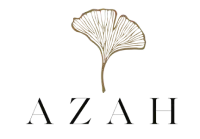
Poly-Cystic Ovarian Syndrome (PCOS): What You Need to Know

Polycystic Ovary Syndrome, more commonly known as ‘PCOS’, is a condition that affects an estimated 1 in every 5 (i.e. 20%) Indian women. Despite such a high population being impacted by this condition, many are still unaware of the symptoms and treatment of PCOS.
This lack of information is, in fact, very dangerous as it causes people to either ignore or accept their symptoms. This, in turn, can cause PCOS to unknowingly develop into more serious conditions like type 2 diabetes and even cancer.
It is thus extremely important to know about this syndrome, its causes, symptoms, and treatments so that you can help yourself and those around you recognize the signs.
WHY DOES IT HAPPEN?
In essence, PCOS is a hormonal disorder in reproductive women though the syndrome itself can exceed childbearing years. Women usually show symptoms of PCOS when or soon after their period first starts. But why does PCOS happen?
As you would know, the ovaries produce two types of hormones- female sex hormones (in proportionately higher amounts) and a much smaller amount of male sex hormones, also known as androgens. Both these kinds of hormones play important roles in carrying out our menstrual cycles.
PCOS occurs when there is an imbalance in these hormones i.e. when the ovaries start producing more androgens. More androgens in turn affect the process of ovulation i.e. the maturation of an egg (which breaks down to result in menstruation). Usually, one or more eggs are released from the follicles in ovaries each menstrual cycle. But due to high levels of androgens, this ovulation either doesn’t happen or is delayed.
In place of eggs, very small cysts form in the ovary, leading to the name poly-cystic ovarian syndrome.
WHAT ARE THE SYMPTOMS?
Due to delayed or no ovulation, the most noticeable symptom of PCOS is irregular menstrual cycles. High levels of the male sex hormone also result in excessive body or facial hair (also known as hirsutism). Other symptoms of PCOS include:
- Weight Gain
- Thinning Hair/ Hair loss from the head
- Oily skin or Acne
WHAT ARE THE CAUSES?
There are mainly three causes of PCOS, the most important of them being family history. If the women in your family have a history of PCOS, it is likely that you may also experience similar symptoms. Another cause of PCOS could be obesity, paired with an unhealthy lifestyle and diet. Finally, if one is diagnosed with Insulin resistance (i.e. Type 2 Diabetes), it is likely that they will go through PCOS which may amplify their symptoms.
HOW IS IT TREATED?
The medical treatment of PCOD/PCOS focuses on managing your individual concerns, such as infertility, hirsutism, acne or obesity.
- Lowering of blood glucose levels
- Restoration of fertility
- Treatment of hirsutism or acne
- Restoration of regular menstruation, and prevention of endometrial hyperplasia and endometrial cancer
There is no complete cure for PCOS, rather there are treatments that target specific symptoms of PCOS in order to alleviate them. This is also because different people may experience PCOS symptoms differently. While one person may only get acne due to PCOS, another might experience weight gain. A few examples of different treatments of PCOS symptoms may include:
- Treatment for Acne or Excessive Hair Growth through medicines/homeopathy
- Treatment for Irregular Periods through hormonal birth control
- Lowering blood glucose levels
WHY SHOULD YOU KNOW THIS?
Early diagnosis of PCOS is extremely important as it can help in avoiding serious medical conditions including high blood pressure, type 2 diabetes, high cholesterol, heart disease, etc. Despite this syndrome being such an important and detrimental one, there is little conversation about it in our social spheres. A consequence of this is that women often ignore or accept their symptoms without reaching out for help.
At Azah, we believe it is important to #BreakTheShush about such topics and stop suffering in silence. If you or someone you know experiences such symptoms, consult your doctor for the way forward. Share this blog post with your friends and family and let’s come together to #BreakTheShush!
